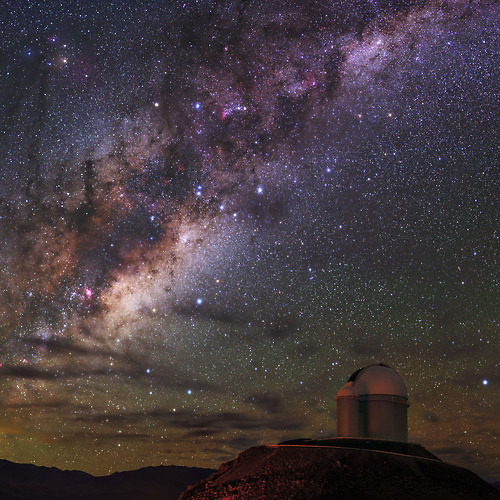

Humanity is intricately linked to the stars. They literally gave us life; we are the dust of these cosmic beasts. But more than that, human civilization has been greatly influenced by the motions and workings of the stars. Throughout history, people looked to these shining beacons, and in them, they saw angels and demons. They glimpsed their gods, and they saw epic battles immortalized for eternity. Now, we know that the stars are balls of burning gas, and that many are hosts to a number of plants (some of which may have strange alien life). We know that they are billions of light-years away, and that many objects that looks like stars are, in fact, entire galaxies.
Although (for the most part) we no longer see the stars as gods or divine heralds, they still influence us. If nothing else, in our never ending quest to reach them, the stars push us to new heights of scientific and technological innovation; they still drive us to work together to achieve a more comprehensive understanding of the cosmos. Since understanding the stars (and the cosmos at large) is such an important focal point of our lives, it’s important to know exactly how we study them and what we mean when we talk of “studying the universe.”
Astrophysics Defined:
Astrophysics is literally “space science.” Specifically, it is a branch of space science that applies the laws of physics and chemistry in an attempt to understand the most massive objects in the universe. Obviously, astrophysics is about more than just stars. It’s about understanding planets, galaxies, nebulae, black holes, and all of the other objects drifting in the cosmos. Since these objects directly influenced our evolution (and continue to influence our evolution), understanding their exact mechanisms is of the utmost import.
There are two branches of this discipline: Cosmology and Astronomy.
Cosmology is the study of the cosmos at large. For example, a cosmologist may study the origin, evolution, and eventual fate of the universe (things like the big bang, cosmic inflation etc). Astronomy is the study of individual objects or structures (measuring positions of galaxies or galaxy clusters, measuring luminosities, plotting motions of stars, etc.). Astrophysics is the field that creates physical theories for the small to medium-size structures in the universe. If it sounds like they all blend together a bit, it’s because they do.
What Astrophysicists Do:
In brief, astrophysicists attempt to understand the universe and our place in it. At NASA (the National Aeronautics and Space Administration in the United States), the goals of astrophysics are “to discover how the universe work, explore how it began and evolved, and search for life on planets around other stars.” And each year, indeed, each day brings us a little bit closer to understanding the overall formation of the cosmos. New and better technologies allow us to peer farther back into the history of the universe and glimpse structures that are billions of years old, bringing us closer and closer to the moment of the big bang.
Some of the primary questions that astrophysicists attempt to answer are: How does the universe work? How did we get here? Are we alone?
In an attempt to answer these questions we have traveled to the moon, soared past all the major planets in our neighborhood, and even left the solar system. We have created the Hubble Space Telescope and the International Space Station (ISS) in an attempt to get closer to the cosmos. These joint efforts not only increase our understanding of the universe, they help to create bridges between the various nations of the world. And these joint efforts help us build the future. Technologies created for space exploration have lead to safer homes, cars, and planes. The developments created for the ISS have allowed us to more effectively heat our homes, clean our water, and feed Earth’s ever increasing population.
But most importantly, astrophysics help us understand our position in the universe. Indeed, astrophysics allows us to understand the universe, and in so doing, it allows us to understand ourselves…
